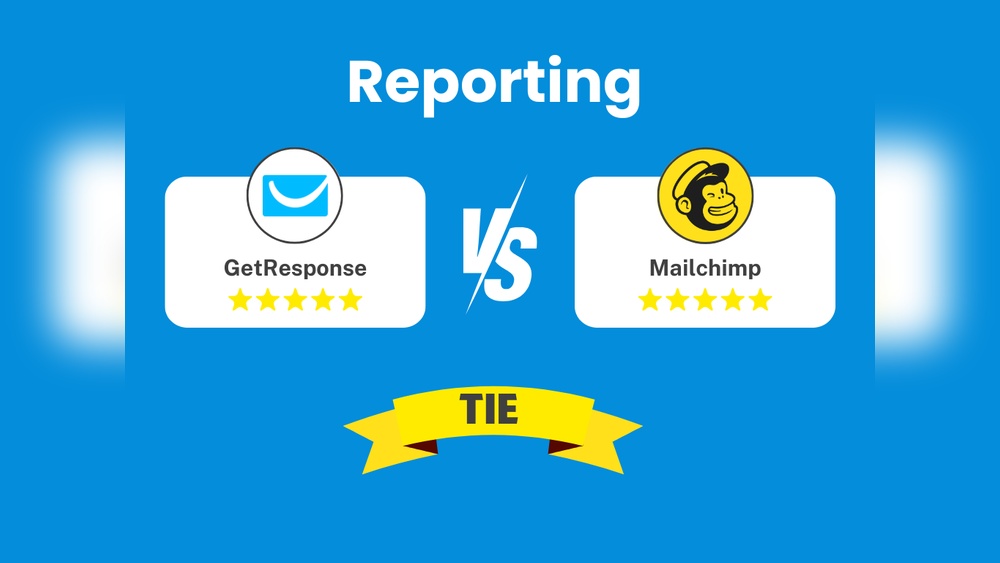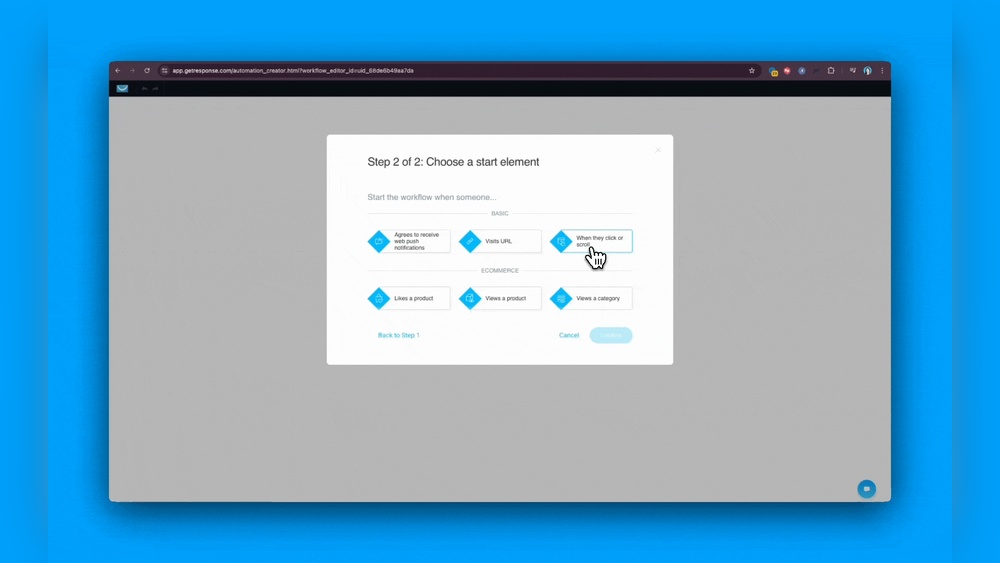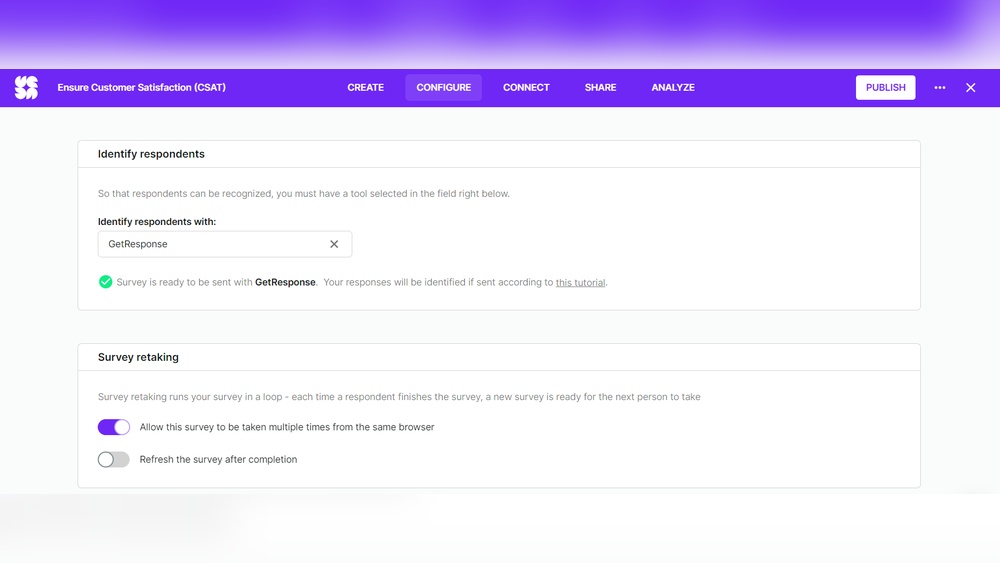Are you trying to choose between QuickBooks Pro and QuickBooks Enterprise for your business needs? This decision can feel overwhelming, but don’t worry—you’re not alone.
Many business owners face this exact challenge. The good news is that understanding the key differences can make your choice much clearer. Imagine having a tool that perfectly aligns with your business operations, streamlines your accounting processes, and empowers you to make informed financial decisions.
That’s what the right version of QuickBooks can do for you. You’ll discover the strengths and limitations of both QuickBooks Pro and Enterprise. By the end, you’ll have the clarity you need to select the option that will best support your business growth and efficiency. So, if you’re eager to enhance your business’s financial management, keep reading. This guide is tailored to help you make the most informed decision possible.
Features Comparison
QuickBooks Pro offers essential accounting features, ideal for small businesses. Enterprise provides advanced tools, supporting larger companies with complex needs. Both have user-friendly interfaces, but Enterprise allows more users and offers enhanced customization.
When choosing between QuickBooks Pro and Enterprise, understanding the features can guide your decision. Both versions offer robust tools, but they cater to different business needs. Let’s break down some key features that might influence your choice.###User Capacity
QuickBooks Pro is designed for small teams. It allows up to three users, making it ideal for small businesses or startups. You can easily collaborate with a couple of team members without overwhelming the system.On the other hand, QuickBooks Enterprise can accommodate up to 40 users. This is a game-changer for larger companies with multiple departments. Imagine having your entire finance team working seamlessly without any hiccups.Consider your current team size and future growth. Do you anticipate scaling up soon? More user capacity could be crucial for smooth operations.###Advanced Reporting
QuickBooks Pro provides essential reporting features. You can generate reports that cover basic financial needs. This might be enough if you’re just starting or have straightforward financial tracking.QuickBooks Enterprise, however, offers advanced reporting capabilities. With more detailed and customizable reports, you can dive deeper into your financial data. This can be particularly useful for making informed decisions and strategizing for growth.Think about the complexity of your financial analysis. Do you need more detailed insights to drive your business forward?###Inventory Management
Inventory management in QuickBooks Pro is basic but functional. You can track items, set reorder points, and manage vendors. It’s suitable for businesses with a simpler inventory setup.In contrast, QuickBooks Enterprise offers advanced inventory features. It includes tracking across multiple locations, serial number tracking, and sophisticated pricing rules. This can save time and reduce errors in inventory management.Reflect on your inventory needs. Is your inventory structure complex? Advanced tools might streamline your processes significantly.Each feature serves a purpose depending on your business scale and complexity. Consider your current needs and future plans. Which features align best with your business goals?Pricing Analysis
Choosing between QuickBooks Pro and Enterprise often boils down to understanding the pricing structure. This decision affects your budget and the overall value you receive from the software. Analyzing costs, subscription options, and value for money can help you make an informed choice. Let’s dive into the specifics to ensure your investment aligns with your business needs.
Cost Structure
QuickBooks Pro typically offers a more straightforward pricing model. It’s usually cheaper upfront, making it appealing for smaller businesses or those just starting out. You pay a single fee for the software, which includes essential accounting features.
Enterprise, on the other hand, comes with a heftier price tag. It offers advanced features and customization, designed for larger businesses with complex needs. You might find the initial cost daunting, but the advanced tools and flexibility could justify the expenditure if your business requires them.
Subscription Options
QuickBooks Pro offers a one-time purchase option, allowing you to own the software without recurring fees. This can be cost-effective if you’re planning for the long term and don’t need frequent updates.
Enterprise is often subscription-based, providing regular updates and support. This ensures your software stays current with industry changes. If you prefer a set-it-and-forget-it approach with ongoing support, Enterprise might be worth considering.
Value For Money
Are you getting what you pay for with QuickBooks Pro? Its lower cost can be attractive, but consider whether it meets all your business needs. If you’re missing key features, the savings might not be as significant.
Enterprise might seem expensive, but think about the long-term benefits. Access to premium features and dedicated support can enhance efficiency and save you time. Consider if the advanced functionalities and scalability align with your growth plans.
Ultimately, the decision between Pro and Enterprise should reflect your business size, complexity, and growth aspirations. Do the features justify the cost for your operations? What does your business need today, and what will it need tomorrow?
Ease Of Use
Choosing between QuickBooks Pro and Enterprise can be a daunting task, especially when considering the ease of use. If you’re juggling numerous business tasks, you need software that’s intuitive and straightforward. Let’s dive into how each version handles ease of use, breaking it down into key aspects like user interface, learning curve, and customer support.
User Interface
QuickBooks Pro offers a clean and simple interface that most users find easy to navigate. The layout is intuitive, making it easy to find core features like invoices, expenses, and reports. Think of it as a friendly dashboard that guides you through your financial tasks.
On the other hand, Enterprise provides a more robust interface with advanced functionalities. While this can be a boon for large businesses needing detailed insights, it might overwhelm you if your needs are simpler. Are you looking for advanced features or a straightforward approach?
Learning Curve
The learning curve with QuickBooks Pro is generally gentle. You can grasp the basics quickly, especially if you’re familiar with accounting software. It’s designed for small business owners who need to hit the ground running.
Enterprise, however, may require more time to master due to its extensive features. You might find yourself spending a bit more time in training sessions. But once you’ve crossed this hurdle, the possibilities are vast. Are you ready to invest time for long-term benefits?
Customer Support
QuickBooks Pro provides solid customer support, including phone and chat options. You’ll find help at your fingertips when you encounter issues. This is crucial for those moments when you need immediate solutions.
Enterprise takes customer support a notch higher with priority services and dedicated account managers. This can be a lifesaver for complex issues, ensuring your business operations aren’t stalled. Would you prefer personalized support or general assistance?
Both versions have their strengths, but your choice should align with your business needs and how much you’re willing to adapt to new systems. So, which one feels right for you?
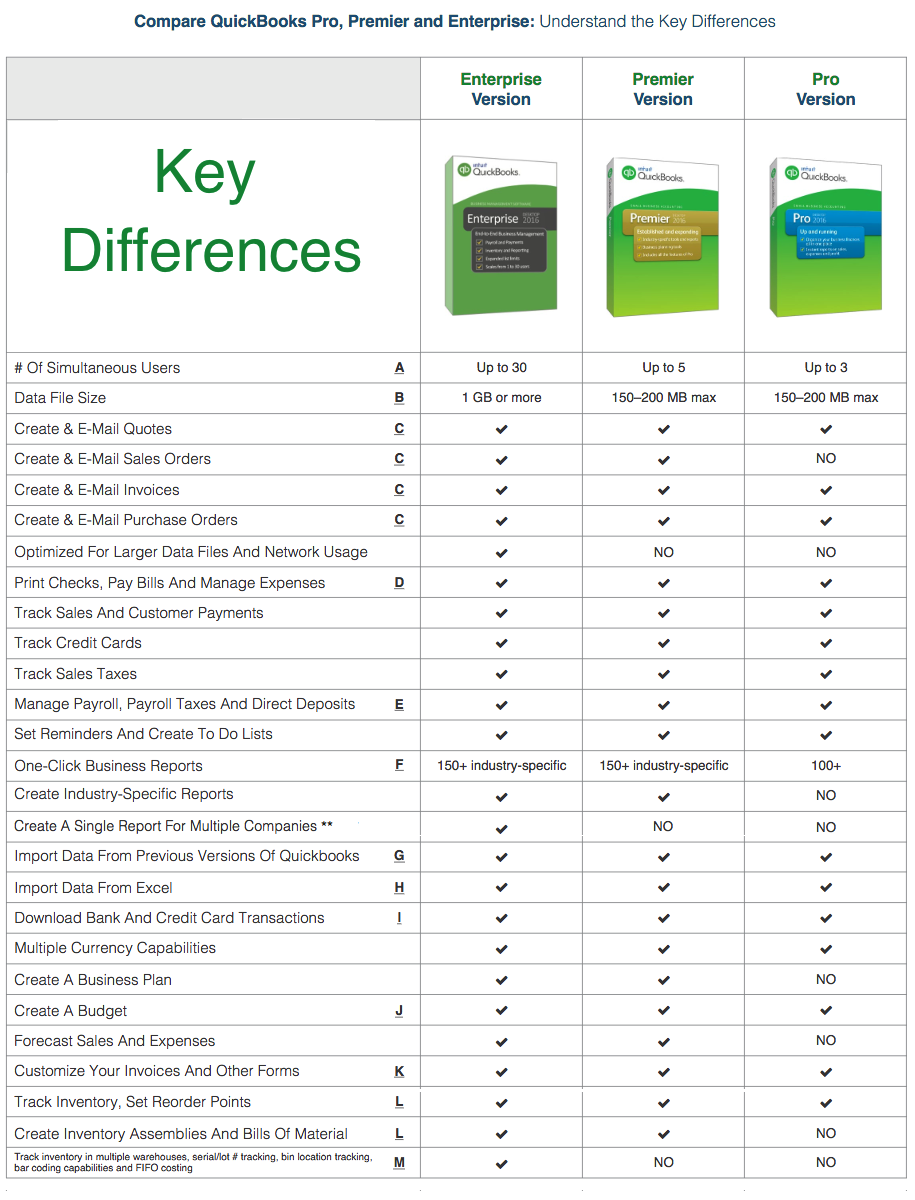
Credit: www.stepbystepquickbookstutorial.com
Scalability And Growth
QuickBooks Pro offers basic features, ideal for small businesses needing limited scalability. Enterprise edition suits larger companies, providing advanced tools for significant growth and expansion.
When considering accounting solutions, understanding how a platform can support your business’s growth is crucial. QuickBooks Pro and Enterprise both offer scalability, but they cater to different needs. Let’s explore how each version supports your business’s scalability and growth, focusing on key factors like business size suitability, future expansion, and customization options.Business Size Suitability
QuickBooks Pro is often ideal for small to medium-sized businesses. It offers essential features that cover basic accounting needs without overwhelming complexity. If you’re managing a modest team and inventory, QuickBooks Pro provides a cost-effective solution.On the other hand, QuickBooks Enterprise is designed for larger businesses that require more robust capabilities. It supports a greater number of users and transactions, which is perfect if your business is expanding rapidly. With Enterprise, you can handle larger-scale operations efficiently.Have you ever found your current software lagging as your team grows? Choosing the right version now can save you headaches down the road.Future Expansion
Thinking about future growth is vital when selecting accounting software. QuickBooks Pro might suit your current operations, but consider if it will meet your needs in two years. If your business plans include significant expansion, Enterprise can accommodate those changes seamlessly.Enterprise offers advanced reporting and inventory management, which are essential for scaling. It also allows for integration with other tools, ensuring your systems grow alongside your business.Is your business ready to invest in technology that can expand as you do? Evaluating your growth trajectory is key to making the right decision.Customization Options
Customization can be a game-changer when aligning software with your business processes. QuickBooks Pro offers basic customization, allowing you to tweak forms and reports slightly. This level of customization works well if your processes are straightforward.For businesses with unique needs, QuickBooks Enterprise provides extensive customization options. It allows for tailored reporting, industry-specific features, and integration capabilities. This flexibility ensures your software supports your specific business model.Have you ever wished your software could do just a little more? Consider the customization capabilities that will best support your unique business challenges.Choosing between QuickBooks Pro and Enterprise hinges on understanding your business’s current needs and future ambitions. By evaluating these aspects, you can select the version that not only supports your growth but also enhances it.Integration Capabilities
QuickBooks Pro and Enterprise offer robust integration capabilities. These features enhance functionality and streamline business processes. Choosing the right one depends on your needs and existing infrastructure. Let’s explore how each version handles integrations.
Third-party Apps
QuickBooks Pro connects with a wide range of third-party apps. This allows businesses to extend their accounting capabilities. Users can add apps for inventory management, payroll, and CRM.
Enterprise offers even greater app compatibility. It supports advanced integrations for complex operations. Large businesses benefit from seamless connections to essential tools.
System Compatibility
QuickBooks Pro runs smoothly on most systems. It integrates well with common software like Excel and Outlook. This ensures easy data transfer and communication.
Enterprise handles higher system demands with ease. It works with advanced systems and network setups. This makes it ideal for large-scale operations and multiple users.
Data Migration
Migrating data to QuickBooks Pro is straightforward. It offers tools for easy import from other systems. Small businesses can switch without losing vital information.
Enterprise offers more sophisticated data migration options. It supports bulk data imports for complex setups. Large enterprises can transition smoothly without disruptions.
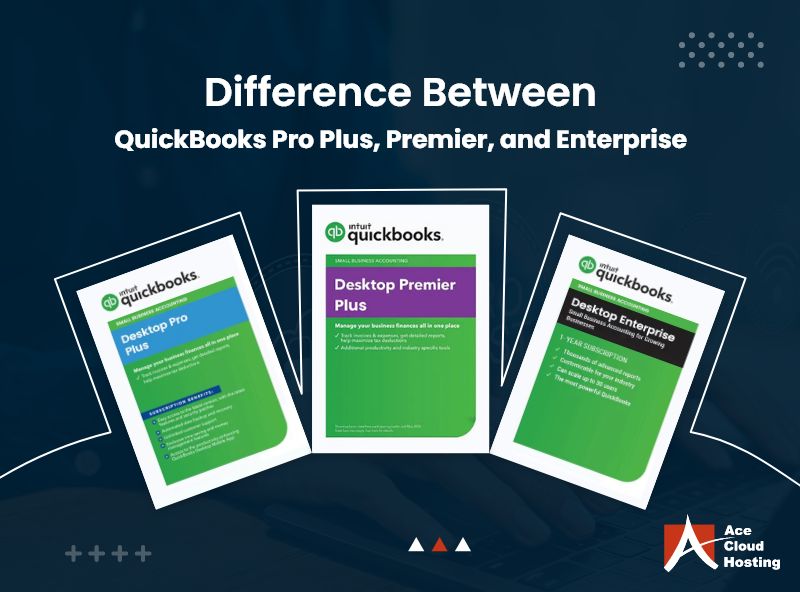
Credit: www.acecloudhosting.com
Industry-specific Needs
Businesses in different sectors have unique needs. QuickBooks Pro and Enterprise cater to these diverse requirements. Both versions offer features tailored to specific industries. But, how do they differ?
Sector Requirements
Each industry demands different accounting solutions. QuickBooks Enterprise supports fields like manufacturing, retail, and construction. It provides tools for complex inventory management. QuickBooks Pro suits smaller businesses with simpler needs. It covers general accounting tasks effectively. Understanding your sector’s needs is crucial for choosing the right software.
Niche Features
QuickBooks Enterprise offers more specialized tools. For instance, manufacturers benefit from advanced inventory tracking. Retailers enjoy detailed sales reporting. Construction firms use job costing features. QuickBooks Pro is more general. It lacks these niche features. But it still offers essential accounting functions. Consider which features align with your business operations.
Compliance Considerations
Compliance is important in accounting. QuickBooks Enterprise helps meet industry regulations. It provides detailed audit trails and role-based access. This ensures data security and compliance. QuickBooks Pro also supports compliance. But it may not meet complex industry standards. Assess your compliance needs before deciding.
Performance And Speed
Choosing between QuickBooks Pro and Enterprise can depend on performance and speed. These are crucial for business operations. Efficient software saves time and boosts productivity. Let’s explore how each version fares in these areas.
Processing Power
QuickBooks Enterprise offers more processing power than Pro. It handles larger data files with ease. This is vital for businesses with high transaction volumes. QuickBooks Pro performs well for smaller businesses. It suits those with fewer transactions.
Network Requirements
Network requirements differ between QuickBooks Pro and Enterprise. QuickBooks Enterprise needs a robust network setup. This ensures smooth operations and fewer disruptions. QuickBooks Pro runs effectively on simpler network setups. It’s ideal for small teams.
Load Handling
Load handling is essential for business efficiency. QuickBooks Enterprise can manage heavy loads without lag. It’s designed for larger businesses with complex needs. QuickBooks Pro manages regular loads well. It’s best for small to medium-sized businesses.
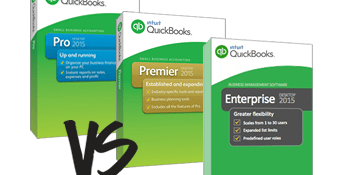
Credit: paygration.com
Security Measures
Security is crucial in financial software. QuickBooks Pro and Enterprise offer robust security features. These features protect your sensitive data from threats. Let’s explore how each software ensures your data remains safe.
Data Protection
Data protection is a top priority for QuickBooks. Both Pro and Enterprise use encryption to secure your information. This encryption keeps unauthorized users from accessing your files. Enterprise offers advanced protection with its enhanced security tools. These tools ensure your data stays confidential.
User Permissions
Controlling user access is essential for security. QuickBooks Pro lets you set basic user permissions. You can decide who sees what in your files. Enterprise goes further with customizable access levels. You can grant specific permissions to different users. This feature allows more control and reduces risks.
Backup Solutions
Backing up data prevents loss during system failures. QuickBooks Pro provides simple backup options. You can easily save copies of your files. Enterprise offers more advanced solutions. It includes scheduled backups and automatic saves. These features ensure your data is safe even if problems arise.
Frequently Asked Questions
What Is The Difference Between Quickbooks Pro And Enterprise?
QuickBooks Pro is for small businesses, offering basic accounting features. QuickBooks Enterprise targets larger businesses with advanced inventory, reporting, and user capacity. Enterprise supports up to 40 users, while Pro is limited to 3 users. Enterprise offers industry-specific solutions and enhanced customization options, providing greater flexibility and control over financial operations.
Is Quickbooks Pro Being Phased Out?
QuickBooks Pro is being phased out, with support ending in 2023. Intuit encourages users to switch to QuickBooks Online or QuickBooks Desktop Pro Plus, which offer more features and regular updates. Upgrading ensures better functionality and long-term support for your accounting needs.
What Is The Difference Between Quickbooks Advanced And Enterprise?
QuickBooks Advanced suits growing businesses with enhanced reporting. QuickBooks Enterprise offers robust features for larger companies, including advanced inventory and pricing. Both provide scalability, but Enterprise includes industry-specific solutions and more user capacity.
Conclusion
Choosing between QuickBooks Pro and Enterprise depends on your business needs. QuickBooks Pro suits small businesses well. It offers essential features. Enterprise supports larger businesses. It provides advanced tools and more users. Consider your budget too. Pro is more affordable, while Enterprise costs more.
Both versions help manage finances efficiently. Evaluate your company’s size and requirements. This helps in selecting the right software. It’s important to choose wisely. The right choice boosts productivity. It also enhances financial management. Make a decision that supports your business growth.

